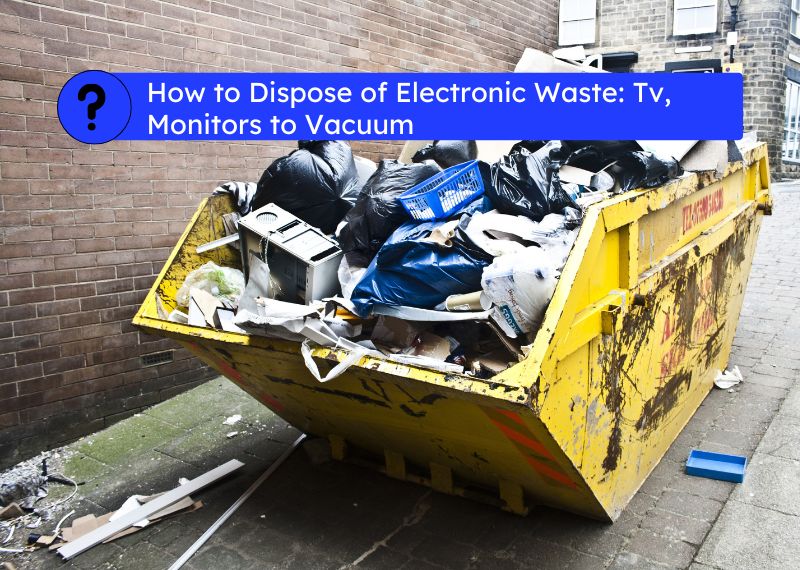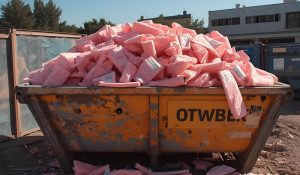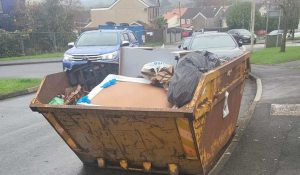How to Safely Dispose of Gas Canisters?

Rachel writes practical guides on skip hire, waste removal, and responsible disposal in the UK. She explains what you can legally put in a skip, how to handle restricted waste, and what it really costs. Her goal is to give clear, up-to-date advice so households and trades stay compliant and avoid fines.
Reviewed by: Skip Hire Team Waste Compliance Manager | Upper Tier Waste Broker Licence CBDU596771
- Last verified:January 7, 2026

Whether it’s a leftover BBQ cylinder, a small camping canister, or an industrial bottle, gas containers are classified as hazardous waste.
Because they are pressurized, they require specific handling to avoid fire risks and environmental damage. This guide covers the legal requirements and safest methods for disposal in the UK.
Why Gas Canisters Need Special Attention
Even when they feel empty, gas canisters are rarely 100% void of fuel. They require professional handling for three primary reasons:
- Residual Pressure: Canisters are pressurized. Puncturing or crushing them can lead to instant structural failure and injury.
- Explosion Risk: Heat or friction can ignite leftover gas, leading to explosions in waste collection lorries or recycling plants.
- Environmental Impact: Escaping gases can be harmful pollutants. Licensed facilities ensure these gases are safely captured or flared.
What are the safe ways to dispose of gas canisters in the UK?
There are three legal and safe routes for disposal depending on the type of canister you have:
1. Return to the Supplier (Refill & Exchange)
Most large canisters (Calor, Flogas, Campingaz) are technically the property of the supplier.
- How it works: Take your empty bottle to a local dealer. If you aren’t getting a refill, they will still take the bottle back to be professionally inspected and reused.
- Benefit: This is the most sustainable “circular economy” method.
2. Local Authority HWRCs
Most Council-run Household Waste Recycling Centres (HWRCs) accept gas bottles.
- Action: Check your local council website first. Most sites have a dedicated “Gas Bottle Cage” separated from general metal recycling.
- Note: Do not just leave them by the gate; notify a site attendant so they can be stored safely.
3. Specialist Hazardous Waste Collection
For businesses or those with a large volume of hazardous waste, it is recommended to hire a licensed hazardous waste contractor. They provide the necessary “Consignment Notes” to prove the waste was handled legally.
Can You Put Gas Canisters in a Skip?
No. You must never put gas canisters in a skip. Skips are designed for general, inert, or non-hazardous waste. Placing a gas canister in a skip is a significant safety breach. If a canister is found in your skip:
- Rejection: The driver may refuse to collect the skip.
- Fines: You will likely be charged a “prohibited item” fee (often £50–£100 per bottle).
- Danger: Compactors in skip lorries can crush the canister, causing a fire or explosion on the street.
What should you never do with an empty gas bottle?
To stay compliant with UK law and ensure public safety, avoid these common mistakes:
- Do not puncture or crush: Never attempt to “degas” a canister yourself.
- Do not throw in general waste: Standard bin lorries use hydraulic compactors that will trigger an explosion if a canister is inside.
- Do not remove valves: Leave the hardware intact so professionals can safely vent the unit.
Best practices for safe storage before disposal
If you are waiting to take your canister to a centre, follow these storage rules:
- Ventilation: Store outdoors or in a well-ventilated shed. Never store them in a basement or unvented cupboard.
- Upright Position: Keep bottles vertical to prevent seal leaks.
- Cool Environment: Keep away from direct sunlight and heat sources (like radiators or garden braziers).
Common Questions (FAQ)
What if the gas bottle is old or rusty?
Can I put small 'pierce-top' camping stoves in the recycling?
Only if they are completely empty and you have a specialized recycling tool. However, for most households, the safest route is still taking them to the HWRC “Gas” section.
Need to Get Rid of Waste the Right Way?
We may not take gas canisters but we do take care of everyday waste. From garden clear-outs to DIY renovations and big site jobs, our skips are ideal for handling everyday waste responsibly.
We offer:
- Fast delivery (often same-day if you book before 10am)
- Friendly, local service
- Clear, upfront pricing with no hidden costs
Ready to book a skip? You can do it online in minutes or give our team a call.









